
Onions are a fantastic ingredient, one that is used in countless meals to add texture and a little flavor. Yet, onions are so familiar that we often take them for granted. It’s easy to forget that they can affect our health in various ways. That begs the question, then, are onions good for you?
Some things are obvious right from the beginning. For example, onions have been used for a long time, without any serious issues. They’re also a natural food, so there’s little processing to worry about. These features automatically make onions healthier than many of the processed foods that line the grocery store shelves.
Onions are also incredibly versatile. You can include them in countless dishes, adding nutrients and antioxidants to your meals. Some onion recipes are incredibly delicious too, like Wasabi-Beer Bockwursts with Teriyaki Onion Marmalade. How can you go wrong with a dish like that?
Still, there are also some less appealing features of onions that we need to talk about too, including their high FODMAP content and the way they can lead to heartburn. So, let’s take a look at positive features, the negative ones, and everything in between.
Are Onions Good For You?
Onion Nutrition

The nutritional profile for onions varies depending on the type you choose and how you prepare it. The details below are for a cup of chopped raw yellow onion.
- Calories: 64
- Carbs: 14.9 grams
- Fiber: 2.7 grams
- Sugars: 6.8 grams
- Fat: 0.2 grams
- Protein: 1.8 grams
- Vitamin C: 20% of your daily intake
- Manganese: 10% of your daily intake
- Folate: 8% of your daily intake
- Potassium: 7% of your daily intake
As always, there are smaller amounts of other nutrients as well, like thiamin, copper, calcium, and phosphorus. Each of these is important for your health, although you’re getting 5% or less of your daily intake for them.
So far, onions don’t seem very exciting. Still, they’re very low in calories and have a subtle flavor when cooked, so it’s easy to add them to meals that you’re preparing. The low calorie content also makes them a simple way to boost your nutrient intake.
The nutritional profile does highlight some surprising features too, including the sugar content. In fact, the sugar in onions is even high enough that some keto dieters avoid onions. Thankfully though, this isn’t essential, you can still include onions on a keto diet, as long as you are cautious about your serving size.
Including onions on keto isn’t even that difficult, as many recipes don’t use all that much onion. For example, you might use half an onion in a recipe that makes 4 to 6 servings.
Benefits Of Onions
They’re Familiar And Versatile
Onions are used throughout the world as a staple kitchen ingredient. This means we have plenty of experience with them and there is an endless supply of recipes that rely on onions.
With such wide use, we can be confident that onions are safe.
Using onions is as simple as cutting them up and frying them with a little oil. You can also use them as part of various meals, like soil, salsa, tacos, stir-fries, and more.
While onions are often cooked, this isn’t at all essential. You can easily eat onions raw as well. Chopping them up and sprinkling them on top of chili is a great place to begin, although once again, there are endless variations.
Onions can also last for months if they’re unpeeled in a cool and dry place. Even at room temperature onions will easily last a week. This makes it easy to always have onions on hand.
Let’s not forget the price either. Onions tend to be inexpensive, making them an easy ingredient, no matter what your budget is.
They Provide Some Fiber

Onions aren’t an amazing source of fiber, with a cup of chopped raw onion giving you a little under 3 grams of fiber. Still, 3 grams is a decent amount, especially as onions are mostly water by weight.
The fiber is extremely important, helping to promote digestion, improve bowel health, decrease cholesterol levels, and promote a healthy weight.
Then there’s the fact that most of us need more fiber. This isn’t surprising, is it? These days it’s so easy to focus on processed foods, ones that are often low in fiber and nutrients.
Onions are a very easy way to increase your fiber intake, as you can use them as an ingredient in most meals. They have barely any flavor when cooked, so why not rely on them?
Their Antioxidant Content
Antioxidants aren’t just found in brightly colored foods. Even white onions offer some antioxidants, including a flavonoid called quercetin. Quercetin doesn’t just reduce oxidative stress either. It’s also been linked to decreased inflammation and may help to lower blood pressure as well.
That said, red onions are the best option for antioxidants. They’re rich in anthocyanins, pigment molecules that give the onions their rich red coloring. Anthocyanin rich foods like blackberries, red cabbage, grapes, and blueberries, have long been associated with powerful health benefits.
May Reduce Heart Disease Risk
Research shows that onions can reduce some risk factors for heart disease. This includes decreasing cholesterol levels, lowering inflammation, and decreasing the risk of blood clots.
Such effects aren’t surprising, given that onions are low in calories, offer a variety of nutrients, and are a source of antioxidants.
Red onions may be the most powerful type for heart health, as anthocyanin rich diets are sometimes associated with decreased heart disease risk.
Could Lower Cancer Risk
Like garlic, onions have also been associated with a decreased risk of cancer. The effect may come from the sulfur compounds present, along with the antioxidants. Some of these compounds might even help to fight cancer.
For example, one analysis of research found that eating allium vegetables regularly (onions are part of this family) was associated with a lower risk of stomach cancer. That’s fantastic news, especially if you already enjoy onions.
Still, it’s important to be realistic here. Eating more onions isn’t going to radically change your cancer risk overnight or make cancer suddenly go into remission. Food tends to affect our bodies in subtler and more nuanced ways.
Still, while you can’t prevent cancer with your diet alone, it makes sense to focus on healthy food as much as you can. This way you have the best chance of living a long and full life.
Can Help With Blood Sugar Control

Onions may help to keep your blood sugar levels balanced too. This effect is common with vegetables because of their fiber content, but there’s more than this going on with onions.
Some compounds in onions can also help with blood sugar regulation, including quercetin and some of the sulfur compounds. The combination of these compounds and the fiber in onions makes them powerful indeed.
Might Improve Bone Density
The link between onions and bone density is a surprising one, yet it has been demonstrated in various studies (like this one). This effect could also reduce the risk of bone fractures as well.
The ability to improve bone density is likely linked to the combination of nutrients and antioxidants found in onions – although the mechanism for the effect hasn’t been proven. Whatever the specific reason, the way that onions can help with bone density is another reason to keep cooking with them regularly.
How Onions Can Be Harmful
While onions are a popular and easy ingredient to use, they’re not always the right choice. Some people might need to cut down their onion consumption or even avoid the vegetable entirely.
They’re High In FODMAPs
One of the problems with onions is a group of compounds called FODMAPs. FODMAPs can be problematic, as they ferment in the body, which can lead to uncomfortable side effects, like stomach cramps, gas, and nausea.
People with digestive disorders, including irritable bowel syndrome, often find that they need to keep their FODMAP intake low. Doing so helps to avoid the worst digestive symptoms.
If you are sensitive to FODMAPs, then cutting onions out could be an important way to improve your symptoms and feel better.
However, it’s incredibly important to pay attention to your body here. Many high FODMAP foods, including onions, offer plenty of health benefits – and not everyone is sensitive to them.
If you don’t have a digestive disorder, then you are probably fine with high FODMAP foods. Even if you do, you might be able to eat some high FODMAP foods, but not others.
Elimination diets are one of the most powerful ways to work out whether a given ingredient is a problem for you or not. These diets often involve cutting out all potentially problematic foods for a while, then slowly reintroducing foods, one at a time.
A simpler approach is to just cut out a single food, like onions, for a few months, then reintroduce it. Doing so makes it easy to see whether onions are causing you any significant side effects.
Increases The Risk Of Heartburn

Onions have also been linked to increased heartburn, particularly if you already get heartburn regularly. Sometimes cutting onions out of your meals is enough to noticeably decrease how often you experience heartburn.
This might be reason enough to avoid onions. After all, heartburn isn’t any fun at all.
Bad Breath
Bad breath is a familiar side effect from onions and garlic. This happens because of the sulfur compounds in onions and can sometimes last for hours or even into the next day.
Thankfully, this effect isn’t a sign of an issue at all. It simply happens because of the sulfur compounds present in the bulbs. Drinking water, rinsing your mouth out, or brushing your teeth after eating an onion-based meal can help to get your breath back to normal more quickly.
Eye Irritation
This problem should be instantly familiar – chopping up raw onions tends to make your eyes water. This happens because of a sulfur metabolite that the plant uses as a defense mechanism. While the metabolite doesn’t hang around long, it can still be enough to make onions frustrating to chop.
Chopping onions under running water is a surprisingly easy way around the problem. Chilling the onion helps as well or, if all else fails, try wearing sealed goggles.
Can Interact With Blood Thinners
Onions have a mild blood thinning effect. This is useful for reducing the risk of heart disease, but can be a problem if you’re taking blood thinning medication. People using warfarin, for example, may find that eating onions regularly increases their chances of bleeding and bruising.
However, these issues will be strongest if you eat large portions of onions regularly. If you’re just using onions as an ingredient in your dinner every so often, they mightn’t pose an issue at all.
Are Raw Onions Healthier?
Onions, of all colors, can safely be eaten raw. Some of us already do so regularly, like by serving chopped raw onions on top of chili or a hot dog. Some people even enjoy biting into a raw onion and eating it like an apple.
It’s easy to see how raw onions could be powerful. After all, cooking causes physical and chemical changes to ingredients, ones that influence the health benefits you get.
Consuming more of these sulfur-based compounds makes sense for health – and eating raw onions is one way to do this.
However, raw onions aren’t for everyone, as they’re more difficult to digest than cooked ones. Anyone with a sensitive stomach might not be able to eat raw onions regularly.
If you find the flavor of raw onions too intense, don’t worry. You can always them to cooked dishes right before serving them. This way you still get the benefits of the onions, while the other ingredients make the flavor of your onions less noticeable.
Are Onions High In Carbs?

Below ground vegetables, like carrots, onions, parsnips, and potatoes, tend to be starchy, which makes them relatively high in carbs. For example, a cup of chopped onions provides close to 15 grams of carbs, a total that includes less than 3 grams of fiber.
This carb content suggests that onions are a no-go if you’re following any type of low carb or keto diet.
Yet, that’s not entirely true. You can still have onions on a strict keto diet, simply because onions are rarely the main feature of your meal. You can easily add a small amount of onion for extra flavor and texture. Just make sure that you watch your portion sizes so that you don’t kick yourself out of ketosis.
The Various Types Of Onions
We’ve mostly been talking about onions like they were all the same, but of course, they’re not at all. There are multiple types, which vary in appearance, how they behave when cooked, and flavor.
The most familiar onions are yellow, white, and red, so let’s begin with them.
Yellow ones are easily the most popular – to the point that many recipes simply call them onions. This type of onion is easy to use and is versatile. The structure of yellow onions makes them excellent for caramelizing, as they hold up well with the extended heat.
Red onions are most well-known for their deep red/purple coloring, which makes them excellent in salads and sandwiches. The onions do, however, have a stronger flavor than white onions, including a peppery kick that’s too much in some recipes.
While red onions are often served raw, this isn’t the only option. You can cook red onions as well. Try roasting them, they’re exceptional.
White onions are the type that often feature in salads and in Mexican cooking. Despite their relatively strong flavor, these onions don’t have much of an aftertaste and are sweet enough to work well in plenty of different meals.
There are some less well-known types as well, including sweet onions, which are easier to eat raw than most other types of onion.
The different types of onions are similar nutritionally, so the same benefits and risks apply across them all. The main exception is that the more brightly colored onions (particularly red onions) tend to have the most powerful antioxidants.
Final Thoughts
Onions are popular and are certainly helpful for adding nutrients and flavor to your meal. They’re also a safe ingredient for most people.
However, as we’ve highlighted, onions mightn’t always be the right choice. If you experience heartburn regularly or have inflammatory bowel disease, onions might aggravate your symptoms. In those cases, it might be best to keep your onion intake low or even onions entirely.
Frequently Asked Questions
Are Onions Keto Friendly?
Onions are actually fairly low in fiber and a decent source of digestible carbs – sometimes giving you around 11 net grams of carbs in a single onion. Yet, onions are still keto friendly because you’re often using small amounts at a time.
So, provided you keep your portion sizes in check, you can easily include onions on your keto diet.
Are Onions Acidic?
Raw onions are particularly acidic, which is why they sometimes cause heartburn symptoms. Lightly cooking the onions makes them more alkaline and can also mean they’re easier to digest.
Interestingly, onions are also alkaline forming. This means that once they’ve been digested they have a net alkaline effect in your body, which is useful if you’re following an alkaline diet.
Which Onions Are The Healthiest?
Red onions are often seen as the healthiest, as they’re rich in anthocyanins. However, yellow onions are a surprisingly good source of antioxidants too. White onions are lower in antioxidants than yellow and red, so they’re not as powerful.
What Is The Best Time To Eat An Onion?
Any time, honestly. Some theories suggest that eating an onion at night may help with sleep, as they’re a source of L-tryptophan and sulfoxides. But, even if this is accurate, eating onions at other times of the day won’t cause any harm.
Are Onions Nightshades?
Onions aren’t classed as nightshades. They’re part of the Allium family, while nightshades are from the Solanaceae family instead.









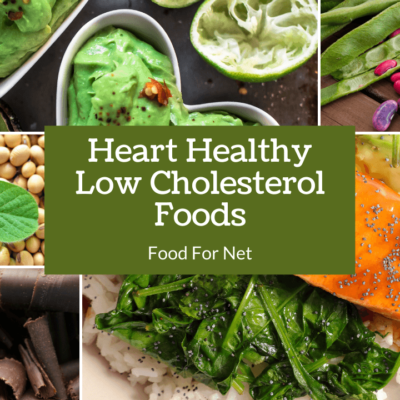

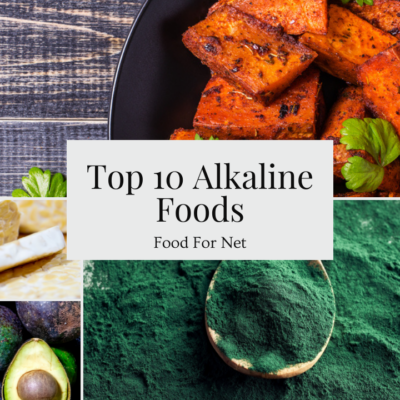
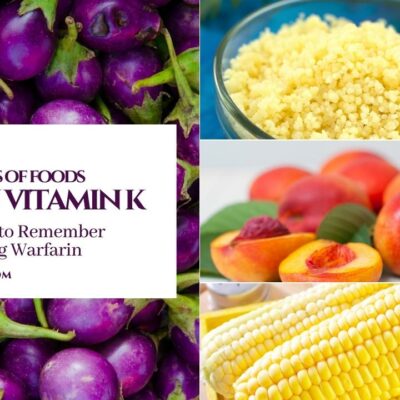


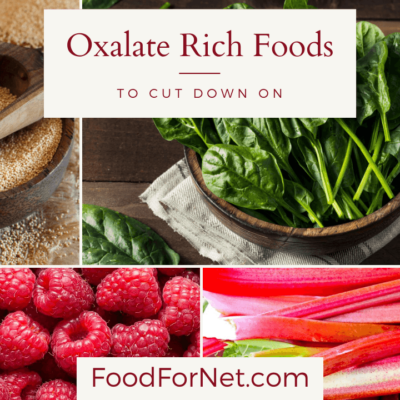
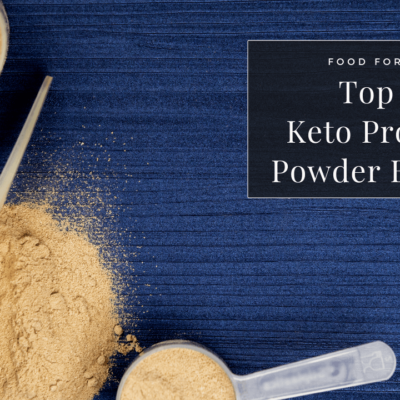
 Are Blackberries Good For You?
Are Blackberries Good For You?
Leave a Reply